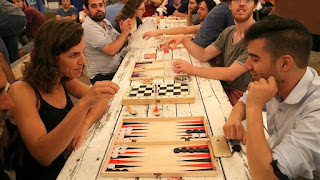I've written at great length, on this blog, about the problems of the contemporary world that preoccupy me. Homogenization. Globalization. The death of tradition. The sidelining of poetry.
But increasingly, I find myself asking what I'm doing about it, and feeling the urge to do something about it. Some kind of protest, or gesture, or stand.
And it's challenging for me, because I'm a shy and retiring sort of chap. I find it very difficult to do anything extroverted.
And yet I feel, by their very nature, the problems that preoccupy me require a more extroverted response than simply writing. That they require taking to the street-- or the supermarket, or the pub, or the other theatres of ordinary life.
My aborted novel, The Cross, in which the central character decides to carry a cross through the streets of Dublin, was an attempt to dramatize this urge.
I've seriously considered forming a group to distribute sheets of poetry outside supermarkets. Anything to disrupt the bovine soullessness of contemporary life.
The supermarket especially upsets me. It seems a provocation that such hideously utilitarian, characterless, consumerist places should be so complacently endured. But people spend far more time in supermarkets than they do in theatres or arts centres or cinemas or galleries.
But the supermarket is only a particularly galling example. I can't reconcile myself to the fact that most daily life is utterly banal, rootless, drained of the transcendent or the poetic.
Other things are fuelling this restlesness, this sense of malaise. I posted this on Facebook yesterday, to no response:
I wasn't really expecting answers from Facebook, of course.
This is where my head is at. I am bothered by things which seem to bother hardly anyone else, and the task of putting them into words is also troubling me.



